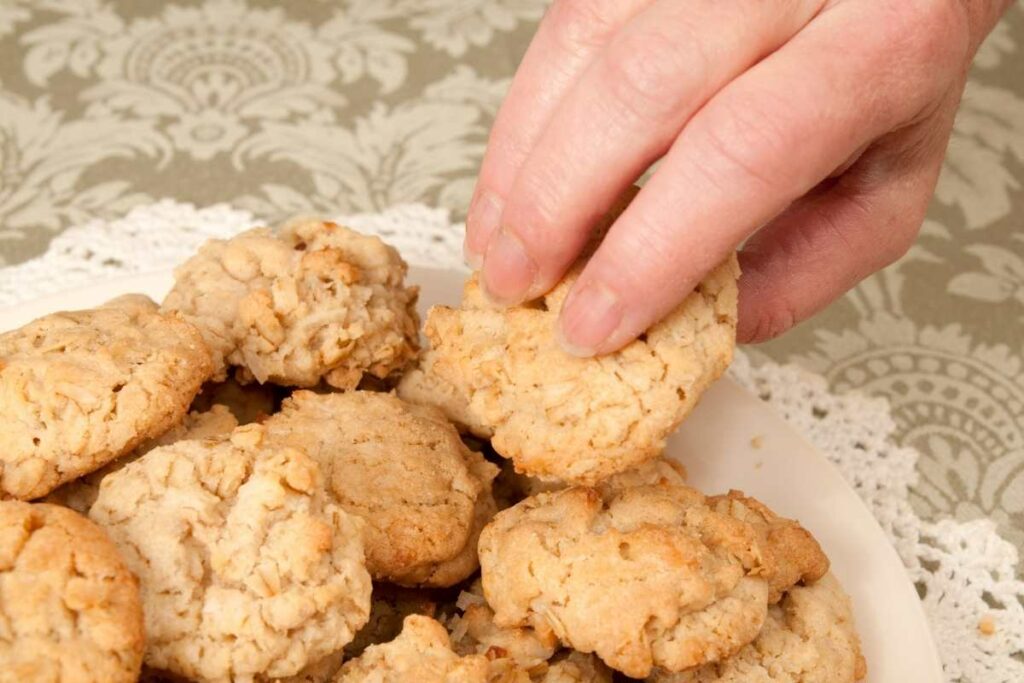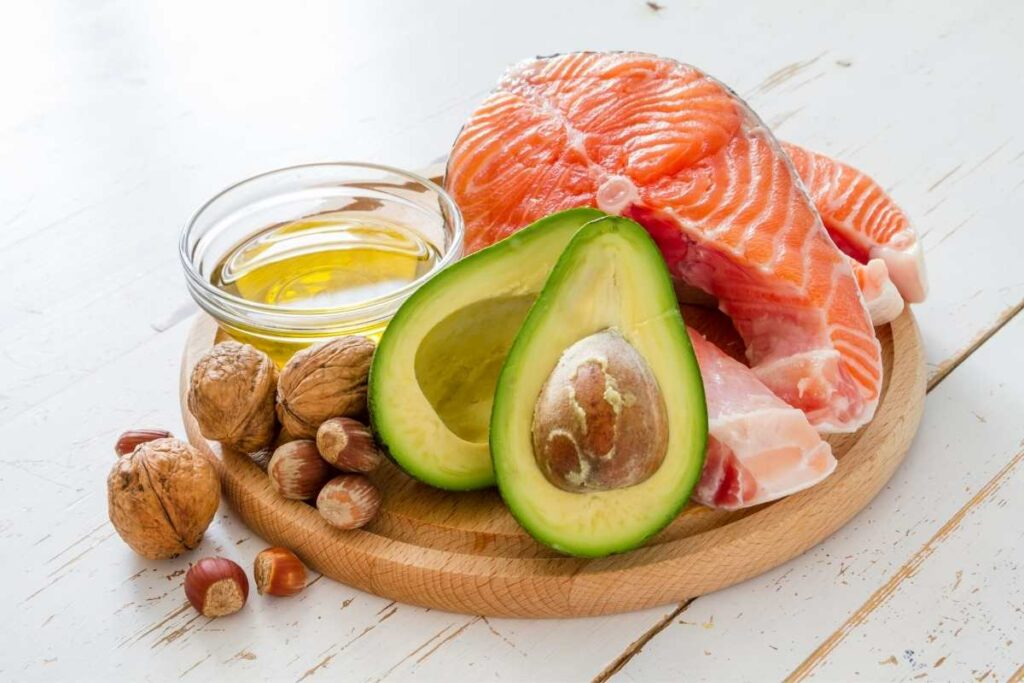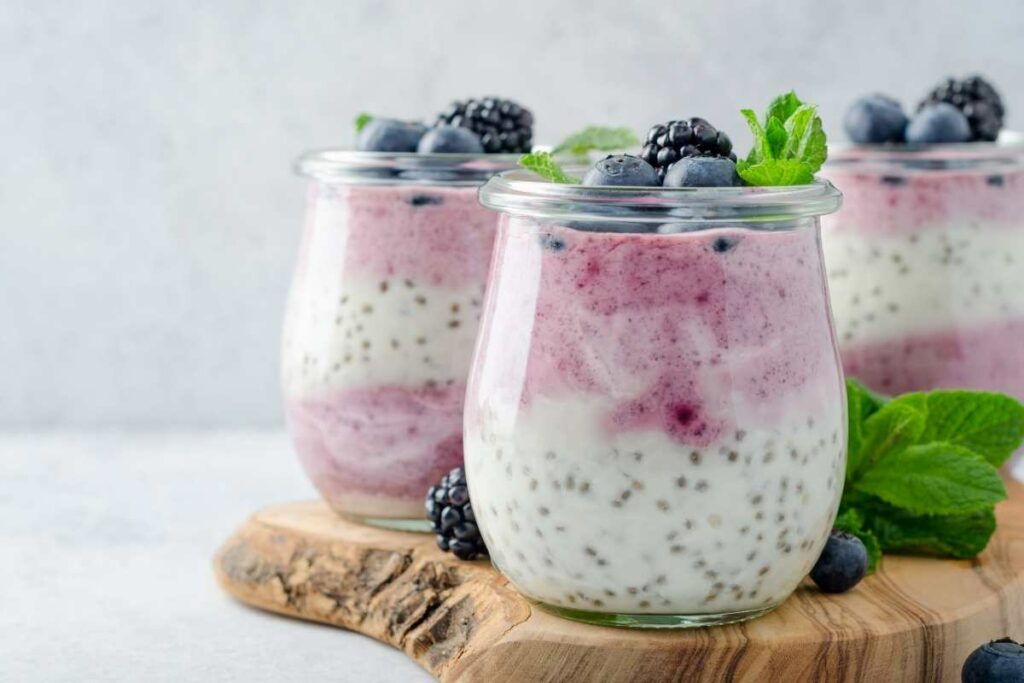Why You’re Not Losing Weight on Keto
Have you recently been asking yourself, “Why did I stop losing weight on keto?”
If you’re feeling frustrated at not reaching your weight loss goals as quickly as you’d like, rest assured that you’re not alone.
In this post, we’ll go over some of the most common reasons why people stop losing weight on keto and what to do about it.
The keto diet restricts carb intake to about 5-10% of total daily calories in order to achieve the fat-burning metabolic state of ketosis.
However, maintaining this state is often challenging. Eating too many carbs at once quickly kicks the body out of ketosis.

Even if you’ve been carefully counting carbs at each meal, there are a few other factors to consider.
For example, no more than 35% of your daily calorie intake should come from protein. Otherwise, the body begins to convert the excess protein into sugars, drops out of ketosis, and stops burning fat.
In addition, eating too many processed foods (even keto-friendly ones) can interfere with losing weight.
It’s best to limit your consumption of snack bars, fast food, and other convenience-type foods in favor of more nutrient-rich, whole foods like full-fat dairy, eggs, fish, meat, poultry, and non-starchy vegetables.
Other elements of your lifestyle may also be impacting your weight loss efforts. Chronic stress, lack of sleep, and not getting enough exercise are all potential contributing factors to not losing weight fast on keto.
These issues can slow down your metabolism and increase your appetite and cravings. Furthermore, excessive alcohol consumption is an easy way to accidentally increase your calorie and carb intake.
Weight loss plateaus are a normal part of dieting. Often, periods of significant weight loss are followed by stages of more stable weight.
As you drop those pounds, you may need to recalculate your daily macronutrient percentages to adjust for the changes to your body weight and metabolism.
We spoke to several keto diet experts to get their opinions and advice about why people are not losing weight on keto. Here’s what they had to say:
This post may contain affiliate links, which helps keep this content free. Please read our disclosure for more info.
Experts Chime In – Why You’re Not Losing Weight on Keto
You might be cheating

One of the primary reasons why I see clients fail on the keto diet is because they are cheating or eating foods and meals that they shouldn’t.
Keep in mind that the keto diet has very strict requirements and it’s not for everyone. In order for keto to work effectively, you need to get into ketosis and stay there.
You can’t eat a keto meal for breakfast and lunch and then have whatever you want for dinner. One high-carb meal can kick you out of ketosis and turn you back into a glucose-burner.
If you’re willing to be very disciplined and not cheat, then the keto diet can be highly effective.
— HeatherHanks, Medical Solutions Barcelona
You aren’t eating enough fat

The number one reason you don’t lose weight on the Keto diet is that you aren’t eating enough fat. Fat has been a bad word since the 1980’s when the fat-free diet craze took hold. Fat was the enemy.
So it’s hard [for some people] to get past the idea that eating fat makes you fat. But when you starve your body of carbohydrates, your body begins burning fat for fuel.
The extra fat in your diet makes you feel full and keeps you from eating too much. And if you don’t get enough healthy fat in your diet, then your protein intake will be too high relative to your fats, your body will treat proteins as glucose, and you won’t go into Ketosis.
No Ketosis means no weight loss. But if you keep your daily fat intake to 70-75%, you should have no problem losing weight on the Keto diet.
— Emily Krill, Resolution Eats
Carb creep can lead to sabotage
The most common reason people don’t lose weight initially or stop losing weight is carb creep. Especially after a period of time on keto, people tend to start eating more carbs and/or more calories, both of which can halt weight loss.
The best way to deal with this is to start tracking closely again so that you can more easily identify which of these is the problem and take steps to correct the imbalance.
— Cheryl McColgan, Heal Nourish Grow
You’re eating when you’re not hungry
The number one mistake that I see people making while on Keto is eating when they actually aren’t hungry.
Far too often we get used to a certain schedule of snacking at night or at certain times during the day.
If you go on the Keto diet and continue to snack during those times (even if eating Keto-friendly snacks) you could be consuming a lot of unnecessary calories.
Before you head into the kitchen for that snack ask yourself… “Am I actually hungry?” Often you will find that you really aren’t. You’re just used to eating at that time so you think you should.
If you are not hungry then don’t eat.
— Hannah Robbs, Get Eatin
You’re simply eating too many calories, and not exercising
If you’re eating too many calories, even if they are from keto-approved foods, you won’t lose weight. It’s important to eat the right number of calories so your body is burning fat and not muscle.
You also need to be exercising. Exercise is a great way to burn fat and lose weight. Make sure you’re exercising in addition to following the keto diet if you really want to see results that last.
— SaraFaravelli, Certified Personal Trainer and Co-Founder of MyBeautik
You give up too soon
The number one reason people fail with the keto diet is that they give up too soon. People often expect to see results immediately, and when they don’t see results right away, they give up.
It’s important to remember that the keto diet is a long-term lifestyle change, and it takes time to see results.
Stick with it for at least a month, and after that time has elapsed, you should know whether keto is right for you.
— Jay Cowin, Registered Nutritionist and Director of Formulations for ASYSTEM
You got the keto flu, and quit

Keto dieters often fail when they don’t understand how much food they should be eating and how much exercise they need to be doing in order to see results.
The keto flu is one primary reason why people may stop following this diet plan.
Related: Learn more tips for getting over the keto flu.
In the beginning, you may feel fatigued, nauseous, and dizzy when your body transitions to using fat for fuel instead of carbs.
This is because it takes time for your body to get used to it when you’re not used to burning fats as a main source of energy.
In order to get through this, you need to make sure that you’re drinking plenty of water and replenishing electrolytes while you’re going through the transition.
— Michelle Hawksworth of Muscle and Brawn
Related: Learn about the best electrolyte supplement for the keto diet.
Your cooking oils could be to blame
If you’re not losing weight on the keto diet then check the quality of your fats. Not all fats are going to be processed the same in your body.
PUFAs (Polyunsaturated Fats) are heat sensitive and when processed into vegetable oils can become toxic.
Bad vegetable oils can contain hidden trans fats due to the heat processing that distorts their fatty acids.
These PUFAs can then negatively impact your body on a cellular level halting fat burning. Your body has to break down these altered PUFAs which can cause oxidative stress and inflammation.
Your body wasn’t designed to process the highly concentrated amount of PUFAs you’ll find in bad vegetable oils. It simply doesn’t exist in nature.
You’ll find these bad vegetable oils in many processed foods including everything from salad dressings to baked goods. Below are the worst of the vegetable oils you’ll want to stay away from:
– canola oil
– cottonseed oil
– corn oil
– soybean oil
– sunflower oil
– safflower oil
– grapeseed oil
– rice bran oil
— Josh Schlottman, Trainer Josh Fitness
There are hidden carbs in your “keto-friendly” foods

You may not be losing weight on keto because you are integrating foods that aren’t actually low in carbs even though they are high in protein or fat.
For example, chia seeds are commonly added to a Ketogenic Diet because they are high in healthy fats, but this may be keeping you from staying in ketosis.
Chia seeds are a nutrient-dense, complete protein, whole grain that can be easily integrated into most dietary patterns other than Keto. A serving of just 2 tablespoons provides 12 grams of carbohydrates.
Jerky is another food that is usually a staple in the Ketogenic Diet, but not every version is equally low in carbohydrates.
Most flavored jerky uses either added or natural sugars in the process, which will quickly raise the carb count. Anyone wanting to add jerky to their keto diet routine should check the nutrition label.
— LisaRichards, Nutritionist, The Candida Diet
You’re stressed out
Chronic stress could be a reason you are not losing weight on Keto. Chronic stress causes an increase in the hormone cortisol. Elevated cortisol leads to an increase in fat storage in adipose tissue, especially belly fat.
Aside from high cortisol, chronic stress can also cause insomnia. Lack of sleep will lead to elevated levels of hunger hormones leptin and ghrelin. High levels of these hormones will have you reaching for more carbs.
— Andrea Benford, Nurse Practitioner, Functional Medicine Health Coach
